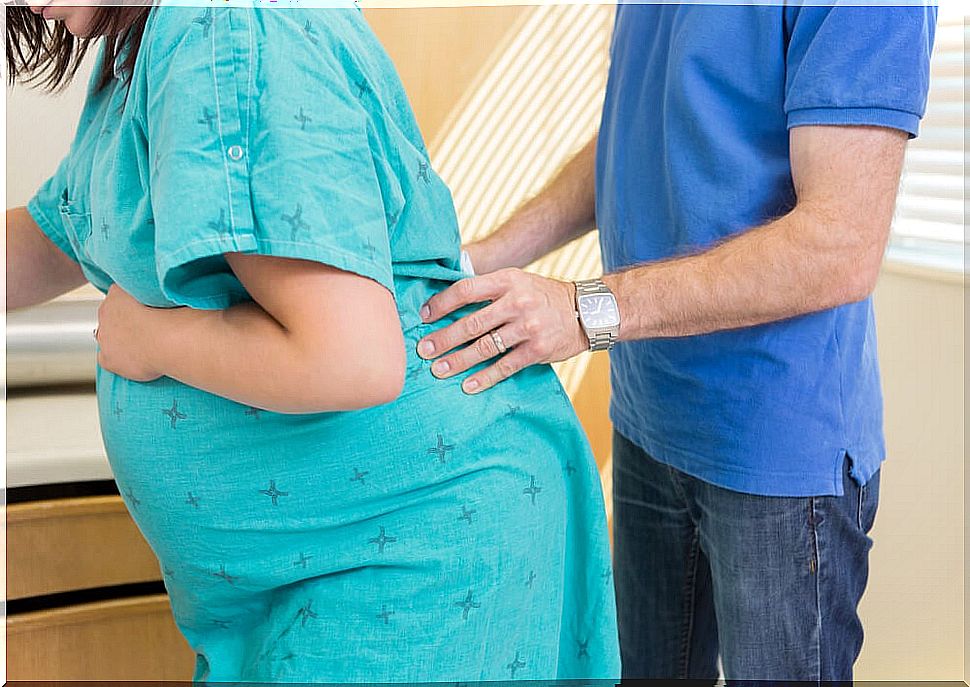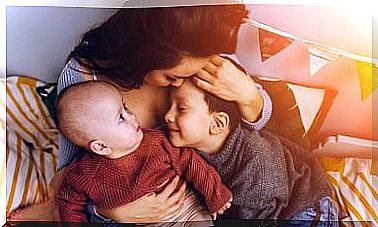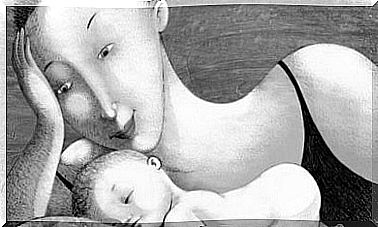Pregnancy Care In The Third Trimester
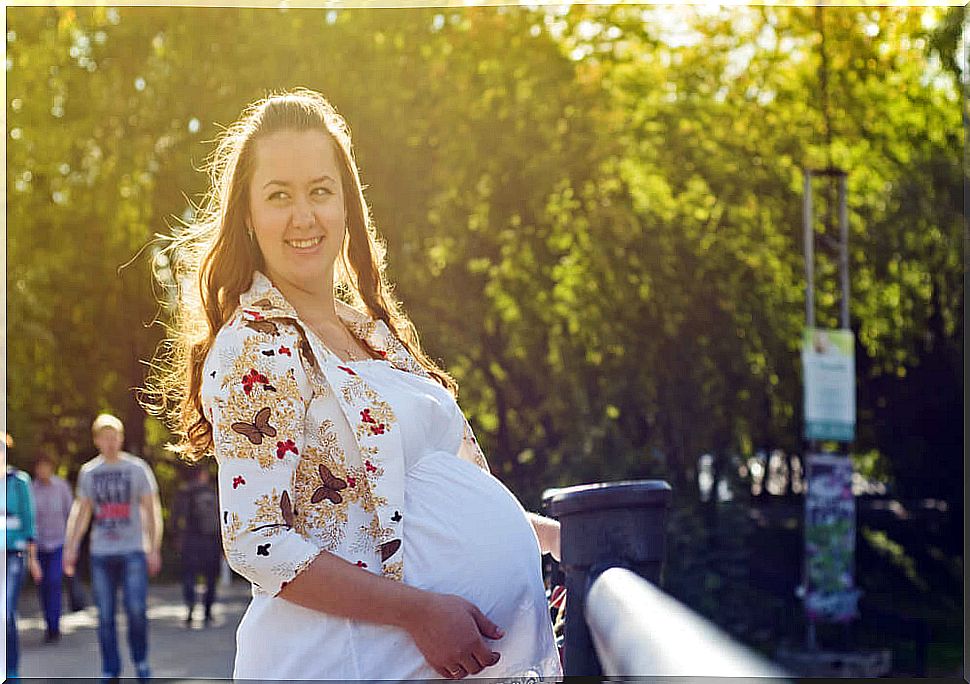
Pregnancy care in the third trimester encompasses different systems and systems of the body that are altered during pregnancy. The changes that occur in the woman’s body throughout pregnancy can give rise to different situations that require specific care.
Pregnancy care in the third trimester
Digestive system
This is one of the body systems that is most often altered by pregnancy. As the baby grows, the uterus increases in size, growing and pressing on neighboring structures and organs. This pressure can cause uncomfortable symptoms for the mother.
Heartburn and reflux
As the uterus grows, it presses up on the stomach, which encourages gastric juices to escape into the esophagus. The cardio sphincter (junction between the stomach and the esophagus) is more relaxed due to the action of prostaglandins (hormones that act during pregnancy), so the passage of gastric juices is doubly favored.
To avoid heartburn and reflux there are certain tips you can follow:
- Rest after meals in a sitting or semi-sitting position. Avoid lying down completely.
- Avoid drinking a lot of fluids during meals. It is preferable to drink more throughout the day.
- Avoid eating very spicy foods.
- Have dinner at least two hours before bedtime.
- If you have burning at night, you can elevate the head of the bed with pillows.
- Drinking a glass of cold milk when the burning starts can help minimize it.
If these symptoms persist, consult your midwife or reference healthcare professional.
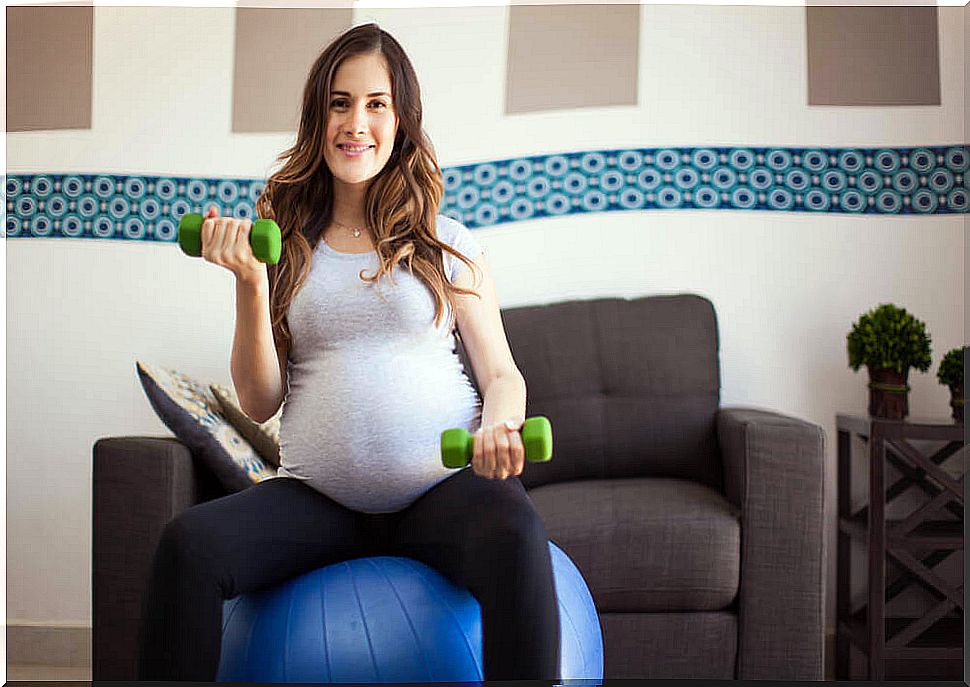
Constipation
During pregnancy, especially during the third trimester, intestinal transit slows down. It is advisable to follow a healthy diet throughout the pregnancy:
- Eat foods rich in fiber.
- Eat fresh fruits and vegetables daily.
- Drink plenty of water (a minimum of two liters a day).
- Perform moderate physical exercise on a daily basis, always adapted to your physical condition.
Hemorrhoids
Hemorrhoids can be very annoying, and can appear or get worse especially in the third trimester of pregnancy. They are generally due to constipation and the pressure exerted by the uterus on the inferior vena cava. They can appear or be aggravated with pushing in the delivery, and can disappear on their own once the pregnancy ends.
To prevent them from appearing, or minimize discomfort, you can follow these tips:
- Eat a healthy diet rich in fiber and water.
- You can do sitz baths to relieve discomfort.
- Avoid consuming spicy food.
If the hemorrhoids become severe, consult your healthcare professional of reference.
Cardiovascular system
This system also undergoes multiple modifications during pregnancy due to the following changes:
- The mother’s blood volume increases during pregnancy.
- Your blood pressure drops and your heart rate increases.
- The return of venous blood is difficult (especially in the legs).
- Increases blood coagulability.
- Cardiac output increases.
Varicose veins
They can appear or become worse during pregnancy. They usually appear on the legs, but they can also appear on the vulva. To prevent them or make them as less annoying as possible, you can follow these tips:
- Avoid standing or sitting for long hours. Take short walks.
- Walk a minimum of thirty minutes a day.
- Use special compression stockings for pregnant women.
- Perform periodic movements of rotation, extension and flexion of the ankles.
- Wear comfortable shoes, avoiding those with a completely flat sole and those with high heels. A low heel is usually ideal.
- Sleep with your legs slightly elevated.
Dizziness
Due to the lower blood pressure during pregnancy and the redistribution of blood volume in the body, dizziness may occur. To avoid them or reduce their appearance:
- Avoid sudden changes in position, especially when you get out of bed.
- Avoid sleeping on your back, as the uterus will press on the vena cava, reducing the blood supply to the brain. It is preferable to sleep on your side, especially on the left side.
- Avoid periods of prolonged fasting. Eat at least five times a day.

Edemas
Edema is the swelling that can appear, especially in the ankles and lower extremities, due to the difficulty in venous return. Blood is retained in sloping areas of the body. Edema generally disappears with rest.
To prevent them you can follow these tips:
- Walk a minimum of thirty minutes daily.
- Use special compression stockings for pregnant women.
- Perform an upward massage with the jet of water in the shower, from the ankles to the thighs.
- Rest with your legs elevated.
- Avoid standing for long periods of time.
Edema in other parts of the body (hands, face …), or that appear suddenly, can be a symptom of other serious pathologies in pregnancy such as pre-eclampsia. Consult with a midwife or health professional of reference any edema that appears.
Locomotor apparatus
Due to the weight of the uterus, the pregnant woman’s center of gravity shifts, shifting forward. The physiological curvatures of her spinal column are altered and the pregnant woman tends to “lean back” to counteract the weight of the uterus.
These modifications can lead to different situations in pregnancy:
Low back pain
It is the back pain that appears when trying to counteract the weight of the uterus by increasing the lumbar lordosis. To avoid or alleviate it, you can follow these recommendations:
- Maintain proper postural hygiene when sitting down and lifting weights.
- Apply local heat to the area to relieve pain.
- Avoid wearing high-heeled footwear, medium heel is preferable.
- Sleep on a hard mattress.
Cramps
They usually appear on the legs (in the twins), and may be due to muscle overload or a deficiency of potassium or calcium. To prevent them:
- Avoid wearing high-heeled shoes.
- Make sure the adequate intake of dairy products, nuts and fruits rich in potassium (banana, papaya …)
- If they appear, try stretching your legs by flexing your foot up. This movement can help the cramp to subside sooner.
Respiratory apparatus
As the uterus grows, it presses upward on the diaphragm, limiting lung expansion and decreasing respiratory exchange.
Dyspnoea
It is the feeling of shortness of breath that generally appears in the third trimester when doing physical activity. If dyspnea appears suddenly or when you are at rest, consult your healthcare professional of reference.
To relieve breathlessness you can try these tips:
- Sleep with the head of the bed higher.
- Do calm physical exercise.
- Avoid overexertion.
- Maintain proper postural hygiene when sitting.
Other changes in pregnancy in the third trimester
Chloasma gravidarum
They are spots on the skin, especially on the face, that can appear during pregnancy. They are due to the increase in the hormone MSH (Melanocyte Stimulating Hormone).
Whenever you go outside, use a cream with a high sun protection factor and avoid direct sun exposure as much as possible.
Hypersialorrhea
It is the increased production of saliva due to estrogens. To reduce the sensation you can chew sugar-free gum (be careful with gas).
Epulis
It is a small lump that can appear on the gum due to the action of estrogens. It is very important to perform an oral examination before or during pregnancy, since the mouth is very sensitive to hormonal changes during pregnancy.
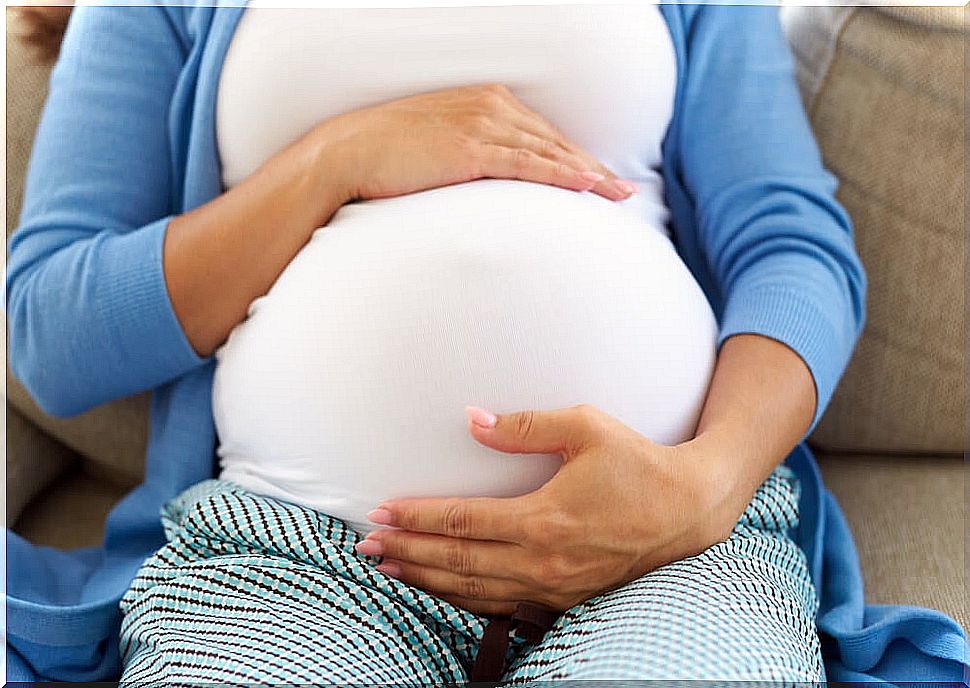
Carpal tunnel syndrome in the third trimester of pregnancy
It is a pain that appears in the wrist and that can be accompanied by tingling in the fingers or a sensation of loss of sensation in the hand. It usually appears at night and in the morning when you wake up.
It is produced by the pressure of the carpal tunnel, which is the tube through which the nerves that go from the hand to the fingers pass (median nerve).
This pressure may be due to fluid retention that pressure exerts, or weight gain that affects the joints. It resolves completely after delivery. During pregnancy, it can be relieved by wearing a wrist strap and sleeping with the arm resting on the pillow.
For pregnancy care in the third trimester remember …
In the event of any changes or symptoms that you notice during your pregnancy, consult your midwife or healthcare professional of reference. With these cares in pregnancy in the third trimester you will be able to find yourself more comfortable and wait for the arrival of your baby with peace of mind.
